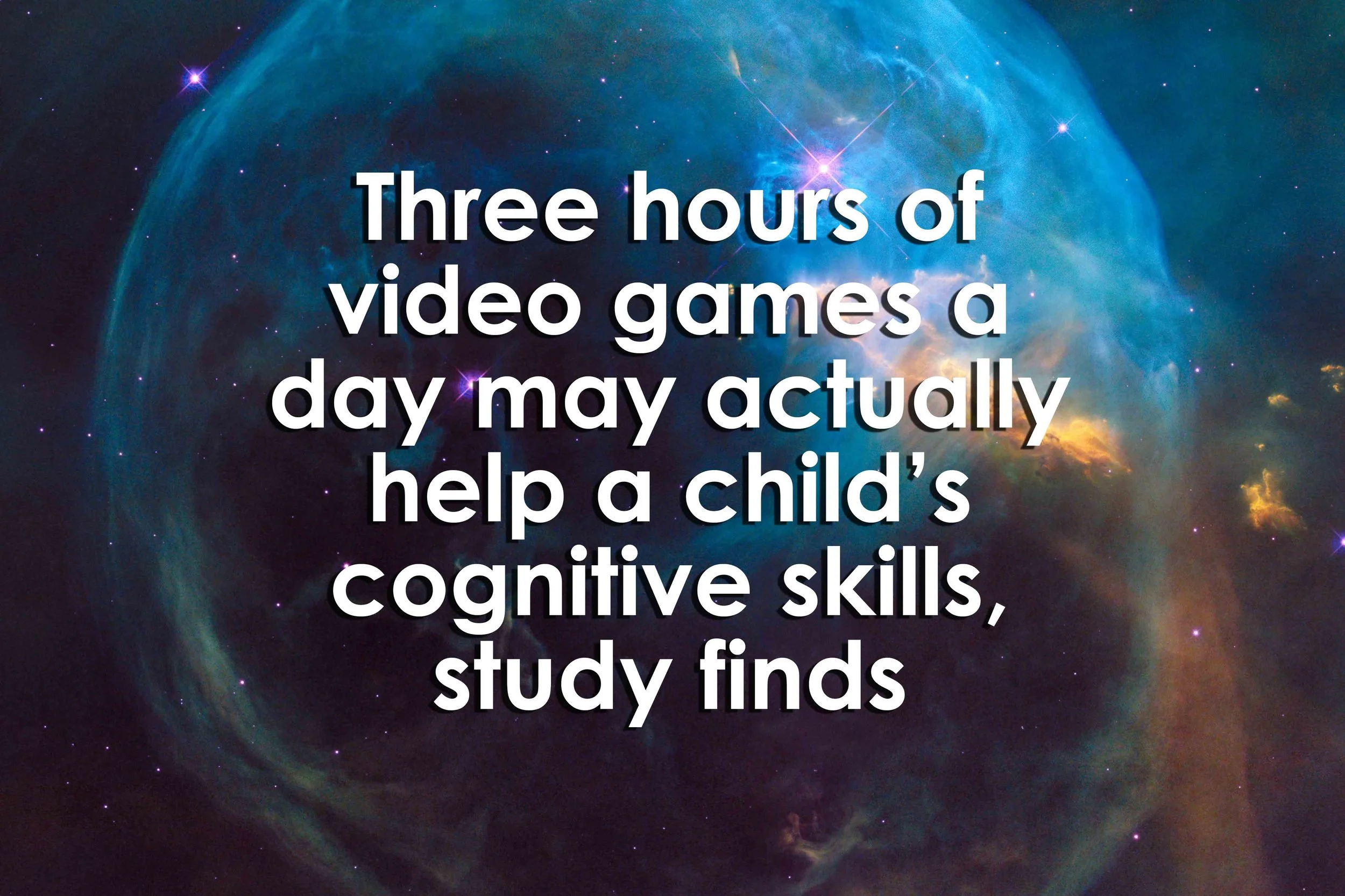The article discusses growing concerns over children aged 6-12 becoming overly dependent on gadgets post-pandemic. Retno Listyarti highlights how children are constantly engaged with smartphones, affecting their physical activity and fostering individualistic behavior.
Read MoreIn recent years, video games have become pervasive in American childhoods, with over 90% of children engaging in gaming regularly. Despite concerns about their impact on education, research from Brunel University London indicates that incorporating video game elements into learning environments can significantly enhance student engagement and learning outcomes.
Read MoreThe children argue with each other about video games. I argue with my wife about video games. It frustrates me, too, when the children refuse to come off Rocket League or Fifa when they're told to.
Read MoreGraphoGame, a game supporting children in learning and developing their mother tongue, is the first Finnish company to receive the UNESCO King Sejong Literacy Prize this autumn. The literacy software and e-leaning methodology GraphoGame was awarded as a result of decades of research and development.
Read MoreContrary to our parents' beliefs that games rot the brain and only lead to laziness, there is a growing body of research suggesting that early exposure to video games can be beneficial for young minds.
Read MoreGame design provides a unique opportunity for kids to become active creators, using their imagination to design and build interactive experiences. Buckle up, as we have a lot to cover.... Why Introduce Game Design to Kids? Before we dive into the nitty-gritty of game design, let's take a moment to understand why it's such an important and valuable skill for kids to explore.
Read MoreBoard games based on numbers, like Monopoly, Othello and Chutes and Ladders, make young children better at math, according to a comprehensive review of research published on the topic over the last 23 years.
Read MoreEach pair met for 18 different 45-minute play dates over a four-month period, so each child had a total of 36 play dates. We observed how very young children developed peer relationships, and how they are capable of engaging in complex games as they get to know a peer over time.
Read MoreThe use of play-based learning in the early childhood and elementary curriculum has gained traction in recent years. High-quality play-based preschool programmes that expose children to learning and problem-solving through self-initiated activities and teacher guidance can have long-term benefits.
Read MoreAcross Australia, tens of thousands of parents are experiencing the same frustrations when trying to regulate their teenage children's screen time, according to Macquarie University psychologist associate professor Dr Wayne Warburton, who specialises in problem gaming.
Read MoreA new scientific study suggests that video gaming may be associated with better cognitive performance in children.
Read MoreFindings from a brain imaging study published in JAMA Network Open suggest that playing video games may be beneficial for children's cognitive development. The study found that children who regularly played video games performed better on two cognitive tasks and showed altered cortical activation patterns in regions of the brain implicated in attention, memory, and visual processing.
Read MoreResearchers have developed a new mixed reality game that can help children on the autism spectrum to develop better motor skills. One of the first is Pop'Balloons, a game designed to help autistic kids develop their motor skills and that is based on years of fundamental research.
Read MoreA new study has however found that hours of computer gaming could in fact improve some cognitive skills, such as those involving impulse control and working memory. The study involved nearly 2,000 children, and those who reported playing video games for three hours a day performed better in cognitive skills tests than those who had never played games.
Read MoreFlying under the radar are video games even though kids in the United States spend much more time playing video games than engaging in social media, according to a recent Common Sense Media report. Last year, China acted: It prohibited minors from playing video games on school days and more than an hour on weekend and holiday nights.
Read MoreFor 13 years, Scott Shaw led Wilmington University's Game Design and Development program - the first four-year degree program of its kind in Delaware.
Read MoreIf we look at computer games for education, games have been developed for young children to learn numbers, letters, colors, and all these things while socializing. If we see a shooting game while playing it, if it is a multiple-player game, people will get a chance to associate with their close friends.
Read MoreNew research suggests that gamified education can help students to improve spatial reasoning skills. The study from the University of South Australia showed that regular use of Makers Empire - a gamified 3D computer-aided design program - can significantly improve spatial reasoning skills in up to 85% of children.
Read MoreWith Ofcom revealing six in ten children played games online in 2021, what might the use of video gaming in the classroom look like to engage students with a model they're already invested in?
Read MoreResearchers have linked spending more time playing video games with a boost in intelligence in children, which goes some way to contradicting the narrative that gaming is bad for young minds. On average, the youngsters reported spending 2.5 hours a day watching TV or online videos, 1 hour playing video games, and half an hour socializing over the internet.
Read More




















